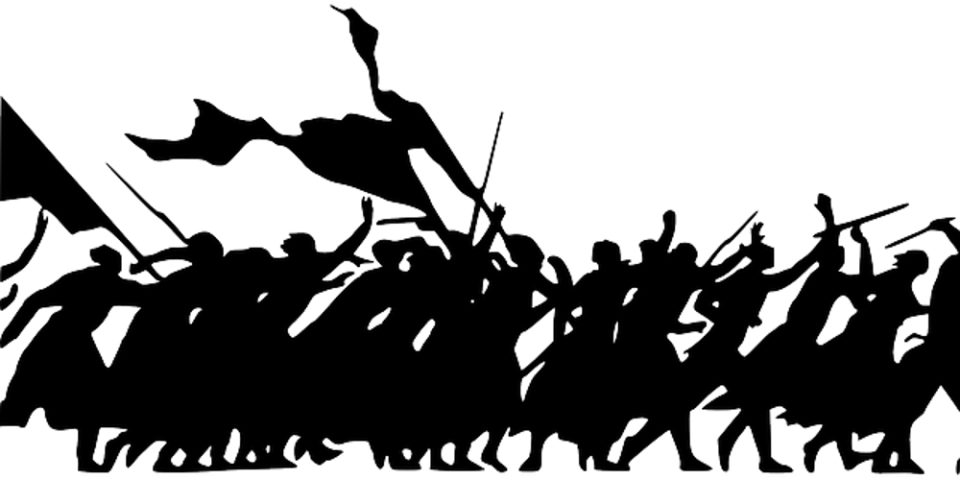This guest post is by C.Jay Engel of The Reformed Libertarian. For guest post opportunities, please see the Contact page.
I have read a good deal of all that Murray Rothbard has written. Not everything. He has thousands of articles and essays and commentaries that have been published, so few can claim that they have read every word. But I have read the books, including the Libertarian Forum. I constantly go back for a refresher to his economic material, to verify some obscure position on political theory, or to gain new insight from his historical perspectives, especially on the Fed. When I want to spur some writing creativity, I will pick up his collection of articles The Irrepressible Rothbard and enjoy myself immensely.
But there is one book out them all that I have read three times, simply because it is ever-impactful for me. Every conservative, though they may not like “Mr. Libertarian” very much, ought to read his Betrayal of the American Right. This book, along with Justin Raimondo’s Reclaiming the American Right, speak of an American Right — the Old Right — that is distinct from the post World War II New Right. It is distinct, and it long ago died.
Today, the New Right, which might be called the Barry Goldwater right or perhaps National Review Conservatism, is juxtaposed to the actually leftist neo-conservatism of Irving Kristol and ole Norman Podhoretz. Thus we are told that to be a True Conservative is to reject the moderate-centrist (neocon) Republicans and hoist up the flag of Reagan, who, of course, was Goldwater reincarnate. False dichotomy: here we have the choice between the (50′s) New Right and the (70′s) neo-conservativism.
What about the Old Right?
What about the pre-Buckley Right that stood up to the foreign interventionism of Roosevelt and Truman?
Rothbard wrote the following of the Old Right:
If we know what the Old Right was against [namely, foreign interventionism], what were they for? In general terms, they were for a restoration of the liberty of the Old Republic, of a government strictly limited to the defense of the rights of private property. In the concrete, as in the case of any broad coalition, there were differences of opinion within this overall framework. But we can boil down those differences to this question: how much of existing government would you repeal? How far would you roll government back?
The minimum demand which almost all Old Rightists agreed on, which virtually defined the Old Right, was total abolition of the New Deal, the whole kit and kaboodle of the welfare state, the Wagner Act, the Social Security Act, going off gold in 1933, and all the rest. Beyond that, there were charming disagreements. Some would stop at repealing the New Deal. Others would press on, to abolition of Woodrow Wilson’s New Freedom, including the Federal Reserve System and especially that mighty instrument of tyranny, the income tax and the Internal Revenue Service.
Compare this to Bill Buckley, initiator of the New Right, who, during the height of Cold War central planning propaganda, opined that “we have to accept Big Government for the duration—for neither an offensive nor a defensive war can be waged . . . except through the instrument of a totalitarian bureaucracy within our shores.” And, as Rothbard wrote, “Buckley concluded that we must all support ‘the extensive and productive tax laws that are needed to support a vigorous anti-Communist foreign policy,’ as well as ‘large armies and air forces, atomic energy, central intelligence, war production boards and the attendant centralization of power in Washington—even with Truman at the reins of it all.’” Buckley, who was far better before his National Review years, spawned a flavor of rightism that was of a different flavor than its individualistic, even radical, predecessor. The Old Right was anti-communism, but the New Right was only against communism in foreign countries. If the Old bravely opposed what Garet Garret termed “a revolution within the form,” that is, a socialistic trend in the United States government, the New ignored it completely. (One thinks of Frank Chodorov, who, during the red-baiting years answered the question of how to get rid of communists who snuck into the American government. Contrary to the New Rightists who wanted to seek out and replace the communists, Chodorov replied: “Easy. Just abolish the jobs.” No government positions, no communists will fill them.)
What was the background of the Old Right? Briefly, it must be noted that there are several meanings of the word conservative. For instance, there is cultural conservatism in which traditional values and ethics are praised while the presence of the State and political theory is simply absent from the conversation. Or, there is political conservatism which may teach that what presently stands in society should be protected, by the strong arm and will of the State. Further, one might point to a distinction between historically developed laws (such as English common law) and the Kingdom which, in order to protect its power and prestige, ignores these laws. Thus leading to a distinction between institutions and laws.
This latter distinction is vital, and rarely considered. For instance, in his Politically Incorrect Guide to American History, the outstanding Tom Woods points out that the American secessionists in 1776 were “conservative.” But how could they be conservative if there existed Tories who were loyal to the throne in Britain? Were not the Tories conservative in wanting to maintain the political status quo? And Murray Rothbard, emphasizing their revolutionary political philosophy in his massive tome of early American history, calls them radicals. So what were they? Radicals or conservatives? The answer is both, and the solution is to employ the distinction between institution and common tradition. Whereas the British King sought to betray the property rights, via taxation and other means, of the colonists, the colonists objected that the King was breaching what had long been English law. The colonists, in this sense were conservative, especially when one considers the socialistic revolutionaries of France. But in another sense they were radicals, for they wanted complete and final separation from the throne. They did not seek to preserve the present arrangement. In short, the radical conservatives of the colonies thought that “whenever any Form of Government becomes destructive of these ends [securing rights], it is the Right of the People to alter or to abolish it, and to institute new Government.”
Now, to be clear, the context of the times in the United States during the 18th and 19th century caused the limited government folks, the radical decentralists, to refrain from referring to themselves as “conservatives.” For to be a conservative in their mind was to support the imperialistic British King, that bastion of tyranny. In their minds they were liberals –classical liberals, who sought to be free from the chains of improper government. The reader is undoubtedly aware of the fact that liberal was not always a euphemism for a socialist. It once meant something similar to its etymological root: to be liberated. That is, to be liberated from the oppressive State, not Marx’s exploitive capitalist.
But socialist theory is a historical reality and soon liberalism was taken over and abused, much like what happens to every word that is adopted by political movements. The Progressives during the early 20th century referred to themselves as liberals. All who opposed the Progressive revolution and sought to defend American individualism and capitalistic radicalism were smeared as “conservative.” Rothbard informs:
Before that, knowledgeable libertarians had hated the word [conservative], and with good reason; for weren’t the conservatives the ancient enemy, the eighteenth- and nineteenth-century Tory and reactionary suppressors of individual liberty, the ancient champions of the Old Order of Throne-and-Altar against which the eighteenth- and nineteenth-century liberals had fought so valiantly? And so the older classical-liberals and individualists resisted the term bitterly: Ludwig von Mises, a classical liberal, scorned the term; …and when Frank Chodorov was called a “conservative” in the pages of National Review, he wrote an outraged letter declaring, “As for me, I will punch anyone who calls me a conservative in the nose. I am a radical.”
Before the Progressive revolution, before the word “liberal” was ruthlessly murdered, it was actually the liberal who
bitterly opposed the emergence of Big Government in twentieth-century America, a government allied with Big Business in a network of special privilege, a government dictating the personal drinking habits of the citizenry and repressing civil liberties, a government that had enlisted as a junior partner to British imperialism to push around nations across the globe. The individualists were opposed to this burgeoning of State monopoly, opposed to imperialism and militarism and foreign wars, opposed to the Western-imposed Versailles Treaty and League of Nations….
But as Franklin Roosevelt came to power, the Progressives and their supporters, applying “liberal” to themselves so as to attract the masses and posture themselves in an attractive light, dismissed the libertarians, the committed and dedicated capitalistic classical liberals, as conservatives and members of the right. The Progressive vision of a State-initiated New World became the “liberal” view and those who opposed it were smeared as reactionaries. Suddenly the radicals were placed in the odd category of conservative. Thus, it is important to know that this Old Right collection of anti-New Dealers and Non-interventionists were forced into the label as the conservative and liberal categories experienced a Grand Swap. Whereas in Europe conservative meant that one defended the Ancien Regime and liberal meant that he was a challenger to it, as were the American colonists, in 20th century America the labels were backwards.
The Old Right had a cause that has been long forgotten in this country: radical decentralization of politics and no foreign entanglements. The Old Right opposed a growing Washington in a consistent and philosophical way that is fundamentally unique compared to the nationalistic New Right. The Old Right was principled and dogmatic. The New Right was compromising and “pragmatic” (always a dangerous component of the power hungry politician). If the New Right emphasizes the importance of preserving the strength of the national government, especially against more local dissenters, it is the Old Right that praises dissension and nullification and constant challenges to the Central State. If the New Right desires nationalized power under the guise of unity and collective security, it is the Old Right that rejects nationalized power as a protection racket, a simple and deceitful excuse for political control.
As Tom Woods says in his introduction to Rothbard’s Betrayal:
Old Right members of Congress like Howard Buffett argued, to the cheers of Rothbard, that the cause of freedom in the world was to be advanced by the force of American example rather than by the force of arms, and that American interventionism would play into the hands of Soviet propaganda that portrayed the U.S. as a self-interested imperialist rather than a disinterested advocate for mankind.
What we laughingly call the “conservative movement” today has little incentive to remind people of the skeptics of interven- tionism to be found among conservative Republicans in the Truman years. In these pages Rothbard makes a compelling case that the Right’s embrace of global interventionism was not inevitable, but was instead the result of contingent factors: the deaths of key representatives of the Old Right at particularly inauspicious moments, the organizational skill of the opposition, and internal difficulties within Old Right institutions.
Under the beware-those-guys-over-there-ism philosophy of modern conservatism, we have forgotten that the most dangerous government is the one that presently sits over us. Despite the utopian claim that the government protects our freedom, the opposite is the case. Don’t fear the Soviet Union as did Buckley. And don’t fear Iran as do the mainstream conservatives.
If you are conservative, embrace the Old Right. Embrace the defenders of the Old Republic. Remember the Old Cause: fear domestic tyranny first and don’t trade liberty for security.



), //libertarianchristians.com/wp-content/plugins/smartquizbuilder/includes/images/template6-latest.jpeg))

), https://libertarianchristians.com/wp-content/plugins/smartquizbuilder/includes/images/template6-latest.jpeg))


;?>/smartquizbuilder/includes/images/sqb-registration-img.jpg)

